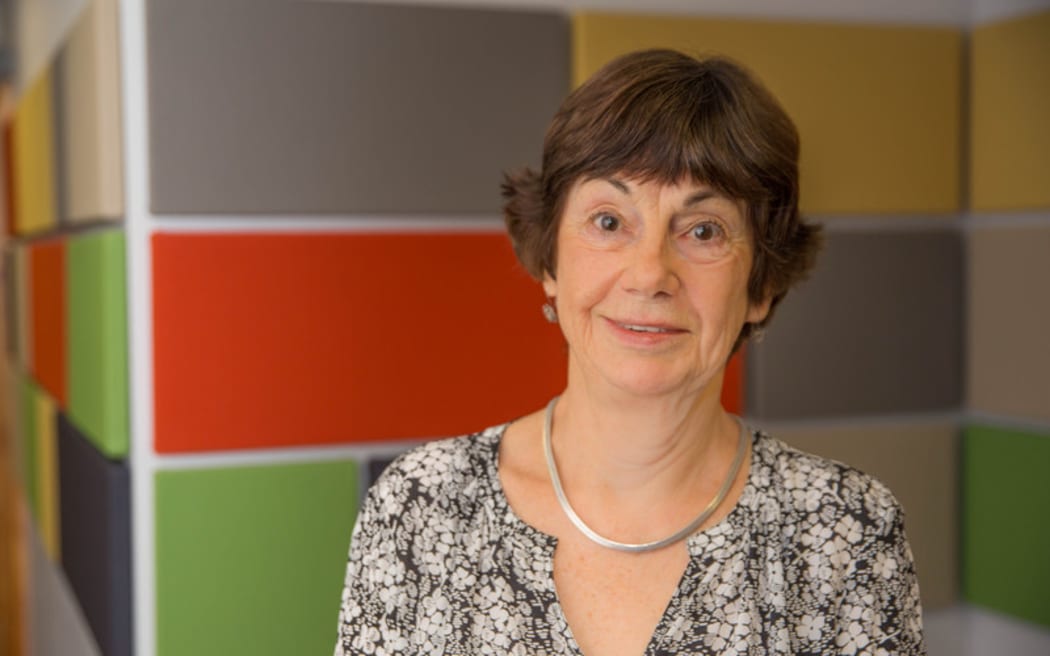It's important to meet several financial advisors before committing to one, says Mary Holm.
She talks about why you might want to use a financial advisor, how to make a shortlist and some good questions to ask when you meet them.
She also answers listeners' questions about how to find good financial advice.
Mary has a list of financial advisors that charge fees and don’t take commissions on her website.
Check out more of Mary Holm's money advice here.

Photo: 123RF
Ann asks:
I have some money from an estate settlement. What advice do you have regarding a process to find out options, and deciding about what to do with it? Go to a financial advisor?
Mary says:
Yes, but a good advisor should always:
Look into your debts as well as any investments you already have, and what investments you might make.
They should help you pay down any high-interest debt and talk about paying down mortgages as well in the light of other options. They should also look at when you’re likely to be spending the money and your tolerance for risk.
So I would say to Ann, yes.
Amelia writes:
I'm wondering if you can give me and my partner some much-needed advice. We are looking for help but don't know where to start.
We would love to present our financial situation and options to a third party and have their opinion on what we can do to better our situation.
It seems, despite constant budgeting and good income, that we can only just keep our heads afloat. It's been like this for years.
The thing is I don't even know where to begin. Do we look for a financial planner? Investor? Advisor?
Any advice you could give me and where to start would be wonderful.
Mary says:
Amelia’s looking for someone to not just look at their finances but their whole attitude to money; the psychological side as well as about how they are handling their money – a good holistic advisor will do that.
A good test of any advisor is if they first ask you about debt – any advisor who's got your interests at heart should ask you if you have high-interest debt – credit card debt, hire-purchase debt or car finance - anything with a higher interest rate than a mortgage and should encourage you, before you do anything else, to repay that.
Rather than saying ‘Oh, you’ve got $100,000 and I’ll get my sticky fingers on it and make some commissions’.
There are advisors working out there who charge you a fee and that doesn’t sound good, but it is good you want to be paying for your financial advice.
Mary has a list of financial advisors that charge fees and don’t take commissions on her website.
The advisors on [the list above] have promised they don’t get any financial rewards other than from their clients.
Any client who requests it a gets a signed letter that says:
“I truly believe I’ve given you the best advice I can, having considered a wide range of products.”
I would love to see listeners writing that out and saying to their providers 'I want you to make this promise to me'.
All these advisors have said they’re willing to do that, and they’ve also got to offer a free first meeting and a free phone conversation before they start charging.
They also promise their advice will include property.
For a financial advisor to be listed on my page they have to have made those promises.
Richard writes:
Your sessions with Mary Holm are really useful. Could you ask her to give advice on finding a financial adviser?
For most of us, it is like finding a needle in a haystack, especially if we have no network of people who understand or know much about finance or investing in shares?
We understand the need for diversity and the need to commit to investing for the long term. It is not enough for her to advise that we shop around and ensure they are appropriately qualified. We know that. Our problem is that we don't know the questions to ask or how to evaluate their answers. They are usually smart marketers?

Photo: 123RF
Mary says:
Some are very smart indeed, some of them are very slick and that worries me. Seminars where they sign you up at the end is not a good way to choose an advisor.
As for networks - there’s quite a lot of people out there who think they know a lot about finance and parade themselves as people who know a lot and people take their advice. Be wary of recommendations from friends and family.
Before selecting an advisor, get together a list of questions you want to ask and email a list to them.
It’s less awkward and a test to see how keen they are if they get back to you and answer your questions thoroughly and fairly fast - and you have replies in writing.
Ask for very specific information about how they charge, some of them are going to charge by the hour, some charge a flat fee to give you a basic financial plan, some charge a percentage of the money you’re investing.
Ask what their rates are. If they baulk and say that depends, they want to meet first - give them a miss and go on to another one.
Also, ask if they charge an annual fee or monitoring fee. And what do they do for that?
Finally, meet the candidates for the job of advising you. You’re interviewing them, you’ve got to ask them questions feel like you’re the one running the show.
There are two things you should be looking for.
Do you understand what they’re saying? If they’re blinding you with financial terms don’t go with them. Go with the ones who say do you know what a share fund is and if you say not really, they tell you.
The other thing is trust, you want to feel like they’re going to be people you can deal with. You’re also getting into conversations about your family, about inheritance etc. You want to be able to talk about all that not just the dollars.

Mary Holm Photo: RNZ / Cole Eastham-Farrelly


